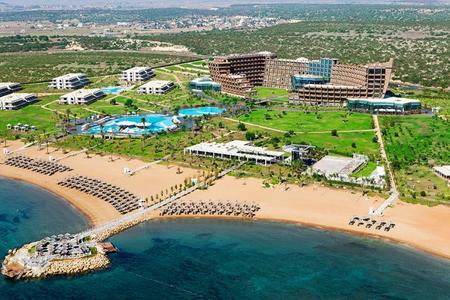Fikri Ataoglu, the north’s ‘deputy prime minister’ and ‘tourism minister’, has called for tourism facilities to be built on currently forested areas.
Speaking to local television station Bagimsiz TV, he pointed out that the development of the previously forested area around the village of Vokolida in 2003, now known as ‘Bafra tourism investment zone’, brought large-scale investment into the area, with multiple hotels and casinos opening in recent years.
He said there is a need for legislation to legalise the conversion of more of the north’s forested areas for tourism, and that the issue is being discussed with the ‘interior ministry’.
The reason for this push, Ataoglu said, is that there are now “too many investors” in the north, with multiple businessmen waiting for the opportunity to open a new hotel.
He said his ministry is “working on increasing the number of beds” in the north and encouraged the ‘interior ministry’ to act quickly on the issue.
One form of tourism that Ataoglu seems to be pushing for the north is health tourism.
The north currently holds the presidency of the global healthcare travel council, and Ataoglu said that in this light, “our efforts to bring health tourism to life this year are ongoing”.
He said that his ‘ministry’ has identified between five and 10 locations across the north where health tourism facilities can be opened, and added “after buying the land, an investor can open a hotel, a nursing home, or a hospital”.
Vokolida still appears to be the centre of Ataoglu’s push to expand and diversify the north’s tourism industry, with him saying that his ‘ministry’ will “create alternative tourism models” in the area.
These plans include golf courses and other sporting facilities, including more than 20 football pitches. Ataoglu said the plan is for foreign athletes and teams to use the facilities for training camps.
During the interview, Ataoglu also spoke about the renovations being made to the old Kyrenia harbour.
He said the renovations will be completed within a month, with the project now set to be completed using materials such as pebble rather than being entirely concreted over.
He added that renovations to the customs building, the sea walls, and other buildings have now been completed, and that the sea water in the harbour will now be cleaner.
However, he did point out that almost 50-year-old electrical cables were found in an area that was excavated and “we didn’t know how they got there”. For that reason, the electricity authority (Kib-Tek) could not carry out their planned work on the project.







Click here to change your cookie preferences